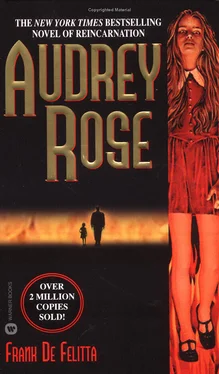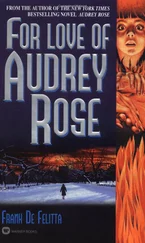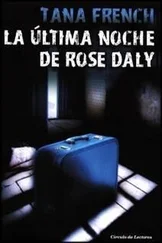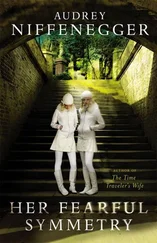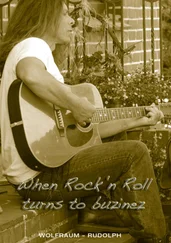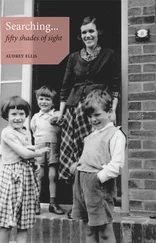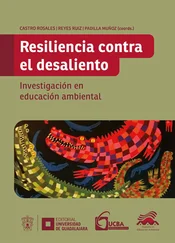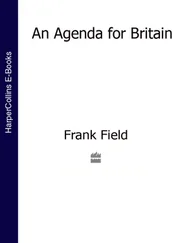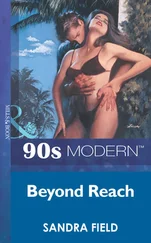By one forty-five the apartment was silent.
Sitting in the rocker, Janice’s expression was calm except for two pinched lines at the corners of her mouth. Her eyes traversed the living room—the only real world she ever knew and loved: the white stuccoed walls that encompassed it, the darkly stained pegged floor that supported it, the glorious ceiling that crowned it. She lingered over each cherished part of it, each pillow and piece of furniture, each painting, lamp, and oddment of bric-a-brac, each item invested with a sweet and gentle memory of a shared, beloved moment in their lives.
A sudden panic gripped her at the thought of all she was risking. She’d lose him. She’d surely lose Bill. She’d lose it all. His love. Their marriage. Their perfect life in their perfect apartment. She felt faint at the thought, and her senses battled against the reality of a life without Bill—a life alone—one more member of that vast unloved, unwanted set, poking about on the fringes of other people’s lives, outside looking in.
Her eyes filled with tears. She wiped them away with her hand and focused her blurred vision down at the worn and scuffed leather cover of the diary resting on her lap.
Hoover’s diary.
She had taken it down from the closet for a reason—a reason that seemed urgent at the time, but that now was vague and incomprehensible.
Why had she taken it down? Was it simply an exercise to while away the sleepless hours ahead? Her need for a companion, a hand to hold through the dark and waiting night?
Or—her face grew stark—were there still things she had to know about this man before she could take her awesome step? All the scraps and pieces of his past, his thoughts and feelings, hopes and dreams, the deep and intimate confidences that lovers convey to each other during courtship.
Yes. That was it—reaching for the diary was a further step in their courtship. A further getting to know the man to whom she was about to consign her family’s future.
Her trembling fingers sought the center page of the bulging diary, and pulling it open, she found herself in a section crammed with small, what seemed to be hieroglyphics—tiny pencil scrawlings in a language that was probably Hindi or Sanskrit. Page after page was filled with these writings; strange, nubby intense words that, although incomprehensible, purveyed a sense of deep passion in their very design and outpouring. The pages continued in this vein until Janice wondered if the tragedy of Prana and her family and Hoover’s loss of faith in the aftermath of their deaths had not caused him to forsake the English language entirely. And then, turning a page, she was startled to see a paragraph written in the same chatty, informational Baedeker-English she remembered reading in the earlier part of the diary.
I am in Mysore. I want to be here because it has been inhabited, I understand, as long as any place on earth. It is the size of New England, which seems almost nonexistent to me now. Are we really all under the same sky?
Good roads. Hotels with formal gardens and fountains. Palaces across the river. But I am looking for animals and trees, not temples. Let me see if there is any majesty inside me.
The next two pages were in Sanskrit, followed by a page in English.
Village life. Get me out of here. I see the same sweet women filling water jugs at the central fountain and the men, once again with their simple dignity as they move with the buffalo and the plows. Thousands of years old. The huts are skimpier than I am used to, and all the beds are outside. I never used to look at something and visualize catastrophe at the same time. But all I can think of is monsoon. Son of a bitch. In Benares I thought I was testing India. The sky opened; the tables turned. India tested me.
After a few more pages of Sanskrit, she came upon:
I walk fast but keep hearing shouts of “Khedda! Khedda!” and eventually follow throngs—in India there are only throngs—hoping they will lead me out of the more civilized parts of Mysore.
Now it’s becoming clear to me what Sesh meant when he explained why the monks go off by themselves. He compared it to an artist during the act of creation. Stopping life to produce life. The artist who will give up all else when involved in creation. I’ve seen men give up food, sex, money, all because of a picture they have to paint. What feeds them is the love of the object and the desire to see it born. Stopping life to produce life. And in the center, the plan toward perfection. The work.
Janice’s fingers flipped through the clipped weeks and months, through prayers and comments and observations, pausing now and again to read an entry that particularly caught her interest.
I walk every day. In order to watch life happen. What I want to see is process, rather than the changes once they’ve happened.
I don’t seek beliefs or religion or divine inspiration here. I seek the quality of silence. I must hear that part of myself that is the most quiet. It is the bridge of my past, present, and future—offering the potential to make past, present, and future all one.
And later:
The birth of a wild elephant baby. A circle is formed around the mother made up of all the members of the herd who face outward to ward off danger. The leader circles around, inspecting, guarding.
Circles. Ritualistic circles. Cycles. The freedom here to watch night and day happen. To watch myself happen. The cycles that I am. I look inside myself and cannot find where I start or stop for there is motion. I think that’s good. And yet, with no ends or beginnings, there is a center in me. Me, me, me, me, me! I’m connecting that funny center in ME to all I’m perceiving outside of ME. INFINITY. INDIA. INSIDE. All these words begin with IN.
IN
CARNATION.
The barely legible script swam before Janice’s vision, and she shut her eyes to rest them. She could hear, in the stillness of the apartment, the whir of the refrigerator and felt an overwhelming despair as she contemplated the coming day. For a long time she sat unmoving, listening for some sound of Bill’s presence upstairs, but could hear nothing. She glanced down at the open diary and, with a nagging conscience, riffled through its remaining pages. There was so much left to read, so many words, so many years of wanderings and thoughts. Pausing at a page toward the end of the diary, she read:
My walnut skin turns white. An icicle hardens on the tip of my nose. I breathe out warm air, and my nose tickles as the icicle melts. Something changes. Something remains. I laugh, and in my giggle there is a roar. Do I sound cocky? That’s the thing with awareness. It just turns into greater awareness. Truth constructs truth.
Tabe Asi, Himalayas
. How that confused me when I first heard it. In Bengali, “good-bye,” but literally, “then I come.” Nothing ends. Everything evolves.
India, my friend, my lover, my teacher, I leave you. Yet, we shall always hold hands. Prana, “breath of life” as they named you, within my pulse is the melody you sang that first day. I can open my eyes and close them. It is the same thing. A sense of what I am and all that I have learned, that energy we all share, I can now embrace and set into worthy action.
Soon my physical environment will be very different. But I shall still have the height of the sun to strive for. What is necessary is to connect all daily activity to my ultimate purpose.
To know, to love, to do.
That is the potent gift of life.
And the very final entry, written in pen and in a bolder hand:
Today, I am in Dharmsala. In a week I shall be in New York. I shall trade my
kata
for a business suit, put on shoes of leather, and move in the panic of cars and subways. Ham and eggs will be my breakfast and not the
Читать дальше
